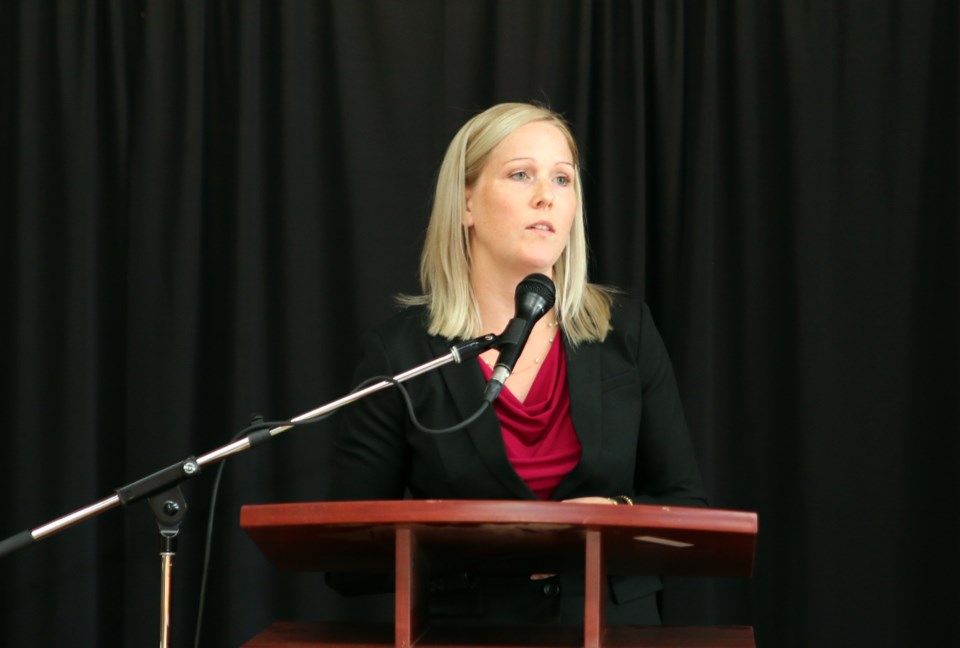THUNDER BAY - The joy of having a child can sometimes change dramatically for a new parent who may feel guilt, remorse, or depression. A researcher at Lakehead University is hoping to change that and reduce the risk of developing postpartum depression by facing those emotions through mindfulness and understanding what they mean.
“We know from the broad research and clinical experiences with mindfulness is it can really help people relate to their thoughts in a different way,” said Carley Pope, a PhD candidate in clinical psychology at Lakehead University.
Through her research into maternal mental health, Pope is hoping to find a way to reduce the risk of developing postpartum depression through mindfulness.
Pope said research has already been conducted on how mindfulness can help women already experiencing postpartum depression, but she wanted to look at how it might be used proactively.
“I was curious to see if maybe we can use it earlier because it is something that anybody, anywhere can engage in to promote their own wellbeing and quality of life,” she said. “So from there stemmed the research question: can we use mindfulness in order to help enhance the maternal transition rather than waiting for difficulties to happen.”
Through mindfulness, Pope said women can develop better physical and mental health outcomes by being more aware of moment to moment experiences.
“Often times when we have these experiences, positive or negative, they happen really fast - thoughts that come on really quickly, emotions, and then we just kind of react,” she said. “What mindfulness does is help reduce that reaction and take a different perspective on that experience.”
The research involves two phases, with phase one involving evaluating mothers dispositional mindfulness and resiliency, as well as quality of life and well-being through an online questionnaire.
Phase two will involve a community-based perinatal mindfulness program to look at how mindfulness supports resiliency to stress and improve the quality of life and well-being of mothers. Recruitment is still ongoing until the end of December. Pope will follow the participants for a 12 week postpartum period to determine any benefits from the program.
The research is part of a studentship for Mental Health Research Canada and CEO, Andrea Swinton, said Pope’s research is important because the outcomes could lead to significant changes in how postpartum depression is treated, but more importantly, how it can be prevented.
“This is a type of research that is proactive, that is preventative, that women can do to help strengthen through what is often a difficult time, through pregnancy and postpartum,” she said. “It is nice to see an innovative, novel approach to a long term problem.”
In Canada, between 30 and 75 per cent of women may experience what is known as postpartum blues. However, 10 to 15 per cent may develop postpartum depression, and Swinton said there is still a stigma attached to the condition.
“It is something more and more women are coming forward and acknowledging is a problem because there is a lot of stigma around it and feeling a little bit of failure, that you are not bonding and feeling that wondrous joyous time you feel you should be having after becoming a new mom,” she said.
“If we don’t talk about these things, then women don’t feel like they can seek help for it, they don’t feel like they can talk to other women and find out that they are also having these experiences,” Pope added. “And we don’t think about what kind of supports or what can we put in place in order to help women during this transition.”
Pope hopes to have the findings of her research available sometime in 2019.
